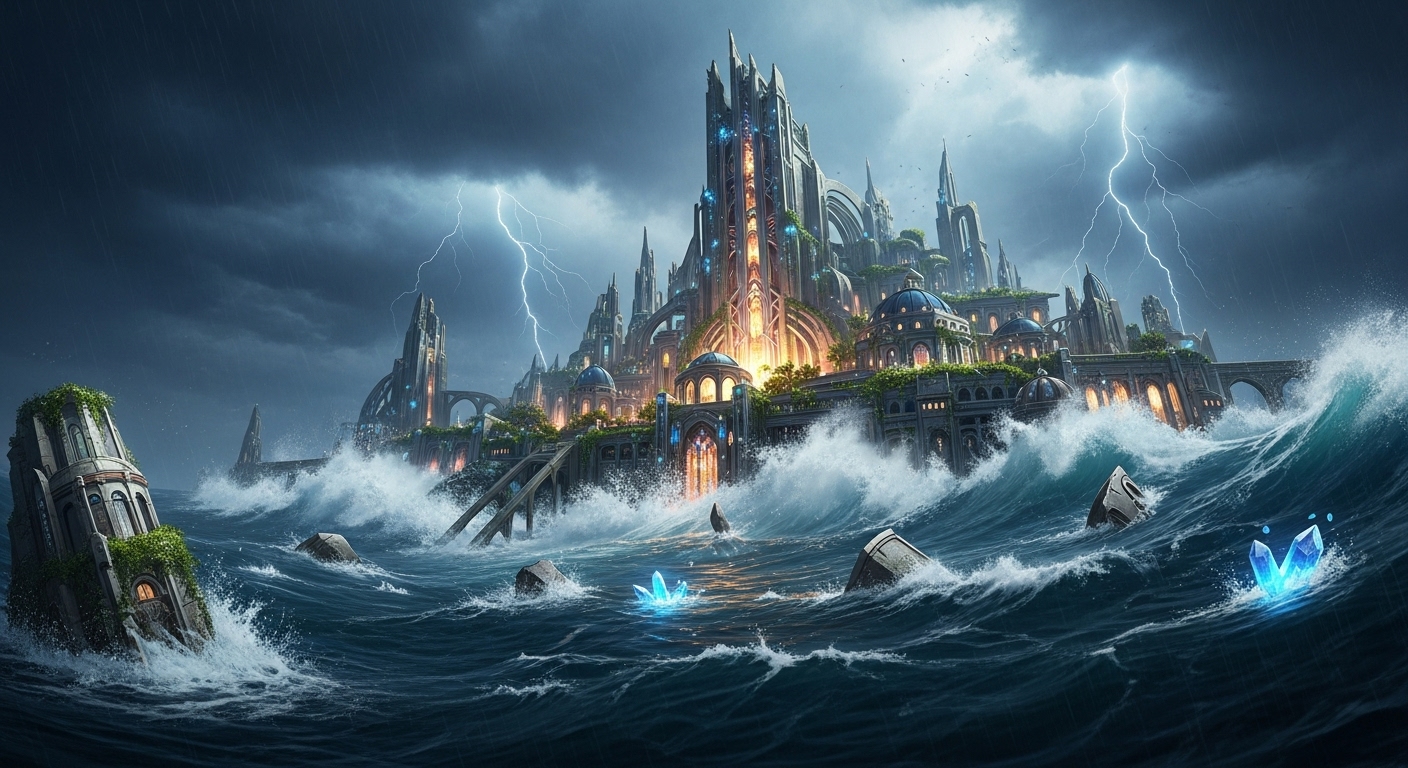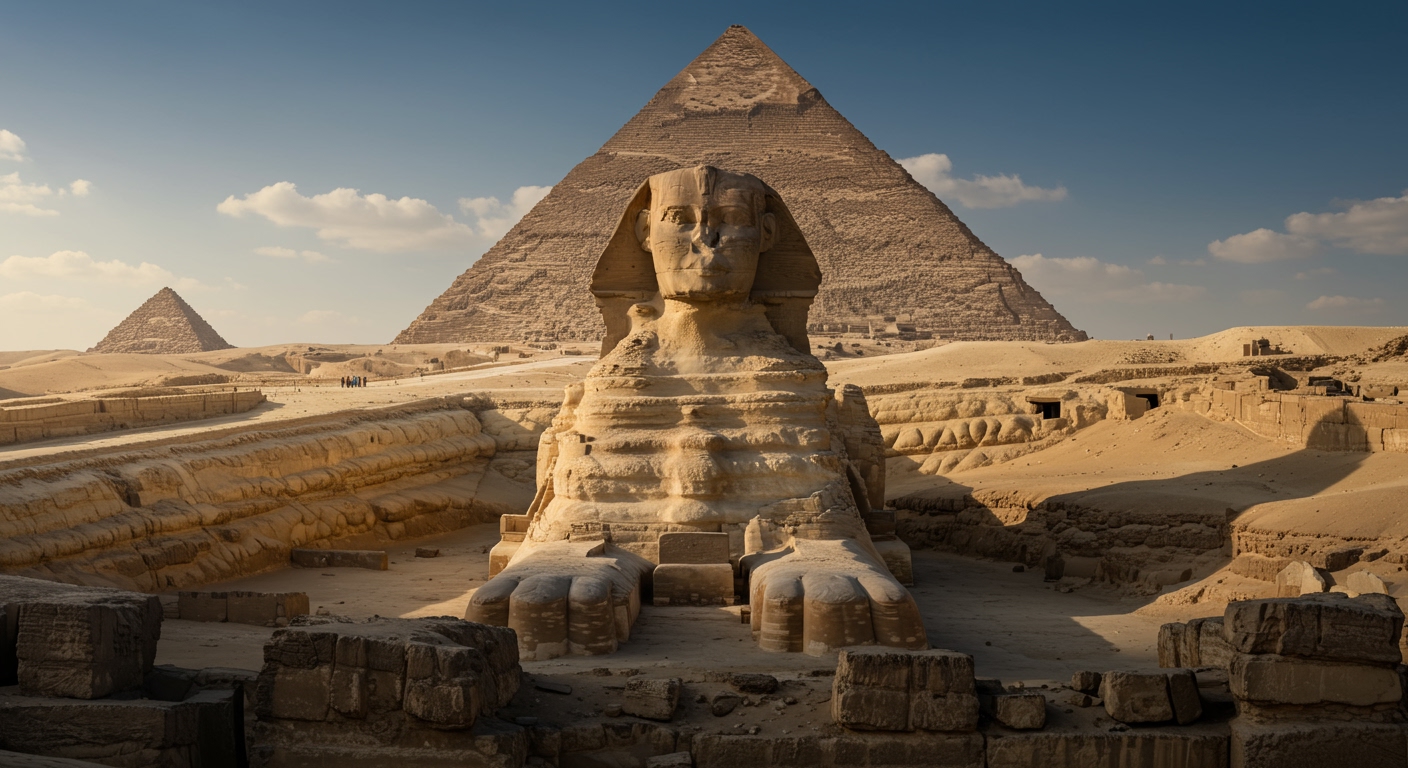The idea of a civilization lost to the depths of the ocean has captivated human imagination for millennia. Few legends burn as brightly as that of Atlantis, a fabled island nation described by the ancient Greek philosopher Plato. More than just a myth, Atlantis represents an enduring fascination with advanced societies, their potential, and their ultimate downfall. But what would it truly be like to experience daily life in such a fabled society? Join us as we delve into the intricate details of what it might have been like to live in the ancient Atlantis civilization.

Introduction: The Enduring Allure of Atlantis
Beyond Myth: Imagining Life in the Legendary Civilization
For centuries, the captivating idea of a civilization lost to the depths of the ocean has fueled countless stories, theories, and dreams. Atlantis, as introduced by Plato, stands as the quintessential example of a highly advanced society that vanished without a trace, leaving behind only whispers of its grandeur. This article aims to move beyond myth and imagine the practicalities and wonders of life in ancient Atlantis civilization, painting a vivid picture of its society, technology, and culture. The legend of ancient Atlantis continues to resonate, challenging us to consider the possibilities of past civilizations.
The Origins of the Legend: Plato’s Account
Unveiling the Source: Timaeus and Critias
Our primary and most detailed source of information about Atlantis comes from the ancient Greek philosopher Plato, specifically in his dialogues Timaeus and Critias [1]. Plato recounts the story as being passed down through generations, originally told by the Athenian statesman Solon, who heard it from Egyptian priests during his travels. These priests claimed the tale was recorded in their temple archives, detailing events from 9,000 years before Solon’s time. While often debated as historical fact, it’s crucial to understand Plato’s philosophical intent: Atlantis served as a powerful allegory. It represented an ideal society that succumbed to hubris and moral decay, offering a cautionary tale about the dangers of unchecked power and materialism. Understanding this foundation is key to appreciating the imagined life in ancient Atlantis civilization.
The Grandeur of the Atlantean Landscape and Architecture
A Land of Wonders: Geography and Natural Resources
Plato describes Atlantis as an enormous island, situated beyond the Pillars of Hercules (the Strait of Gibraltar), larger than Libya and Asia Minor combined [2]. This vast land boasted incredibly fertile plains, towering mountains, and an abundance of natural resources. Imagine a land rich in precious metals like gold, silver, and copper, as well as tin. Most fascinating was the enigmatic orichalcum, a metal described as shining with a fiery radiance, used in their most sacred structures. These resources fueled the Atlanteans’ prosperity and allowed for their monumental constructions.
Architectural Marvels: Cities of Concentric Rings
The capital city of Atlantis was an unparalleled marvel of engineering and design. It was built with a unique circular layout, featuring alternating rings of land and water, connected by navigable canals and magnificent bridges. At its heart lay the royal acropolis, home to majestic palaces, grand public buildings, and impressive golden temples, most notably a colossal temple dedicated to Poseidon. The city’s infrastructure included sophisticated harbors, docks, and intricate irrigation systems that harnessed the island’s abundant water. The advanced engineering prowess of the Atlanteans would have been evident in every aspect of their urban planning, making Atlantis civilization a true wonder of the ancient world.

Society and Governance: The Atlantean Way of Life
Divine Rulership: Kings, Laws, and Social Structure
The governmental structure of Atlantis was unique, ruled by ten kings who were direct descendants of the sea god Poseidon and the mortal woman Cleito. Each king governed one of the ten distinct regions of the island, maintaining a powerful but initially virtuous society. Their laws were divinely inspired, emphasizing justice, wisdom, and communal harmony. The Atlantean social structure was highly organized, with a powerful military, a dedicated priesthood, and a thriving populace. In its early days, Atlantean society was characterized by its moral integrity and adherence to divine principles, shaping the daily life in ancient Atlantis civilization.
Daily Occupations and Community Life
Envision a bustling society where daily activities revolved around a blend of industry, community, and spiritual practice. Markets would have been vibrant hubs of trade, offering goods from the fertile plains and the deep sea. Agriculture, with vast crop fields and orchards, would have been a cornerstone of their economy, alongside extensive deep-sea fishing. Communal ceremonies and festivals would have punctuated the year, fostering a strong sense of unity and shared purpose. There would likely have been a strong emphasis on learning and discovery, with citizens striving for harmony and wisdom, reflecting the initial virtues of the Atlantis civilization.

Advanced Technology and Knowledge in Ancient Atlantis
Beyond Antiquity: Engineering and Innovation
While Plato’s account doesn’t detail specific technologies in a modern sense, it strongly implies an advanced level of engineering and construction far beyond other contemporary civilizations. The sheer scale and complexity of their infrastructure—the concentric city rings, massive canals, and monumental buildings—suggest a profound understanding of hydraulics, geometry, and materials science. The use of unique materials like orichalcum, described as a precious and radiant metal, further points to a sophisticated metallurgical capability, potentially making it an early form of orichalcum technology.
Speculative Technologies: Crystals, Energy, and More
Modern interpretations and esoteric traditions often attribute far more advanced, even “magical,” technologies to Atlantis. These theories propose advanced energy systems, possibly crystal-based, capable of powering their cities and devices, or even flying machines. While Plato’s original text is less explicit about such “super-science,” the idea of a civilization possessing knowledge and tools far beyond our current understanding continues to fuel the allure of ancient advanced civilization narratives. These speculative elements add another layer to the mystique of life in ancient Atlantis civilization, suggesting a society that might have harnessed forces we are only now beginning to comprehend.

Culture and Spirituality: The Soul of Atlantis
A Harmonious Existence: Connection to Nature and the Divine
In its golden age, the Atlanteans’ culture was deeply rooted in a reverence for the Earth and the cosmos. Their spirituality was intertwined with their technological advancements, believing that the Earth itself was a living entity from which they drew energy and wisdom. Rituals and practices were aimed at tapping into these natural energies and achieving higher states of consciousness. This profound connection to nature and the divine would have permeated every aspect of life in ancient Atlantis civilization, fostering a harmonious existence.
Arts, Philosophy, and Education
Imagine a society where cultural expressions flourished, from intricate arts and crafts to profound philosophical discussions that explored the nature of existence and the universe. The study of astronomy would have been considered a sacred language, revealing the patterns of the cosmos and their influence on earthly life. Spiritual guides and healers would have played central roles in the community, nurturing both physical and spiritual well-being. This rich tapestry of culture and spirituality would have defined the soul of the Atlantis civilization.
The Downfall: A Cautionary Tale
The Erosion of Virtue: Hubris and Moral Decline
Despite their initial glory and divine lineage, Plato recounts that the Atlanteans eventually succumbed to human frailties. Their vast wealth and power led to greed, moral decay, and a lust for domination [3]. They began to conquer other nations and lost their original virtues, forgetting their divine heritage and embracing materialistic desires. This erosion of virtue was seen as a grave transgression against divine principles, foreshadowing their tragic end and serving as a timeless warning about the fragility of even the most advanced societies.
Cataclysmic End: Earthquakes, Floods, and the Lost Civilization
As a divine punishment for their moral corruption, Atlantis was struck by a catastrophic series of violent earthquakes and floods. In “a single day and night,” the mighty island was swallowed by the sea, vanishing beneath the waves, taking with it all traces of its advanced civilization [4]. This dramatic end reinforces the allegorical nature of Plato’s story: a powerful warning about the consequences of hubris and a reminder that even the greatest civilizations can crumble. The mystery of the lost city of Atlantis continues to intrigue, prompting us to reflect on its lessons.

Conclusion: The Enduring Legacy of Atlantis
The Myth Continues: Impact on Modern Culture and Thought
Our imagined journey through life in ancient Atlantis civilization reveals a society of breathtaking grandeur, advanced engineering, and profound spirituality, ultimately marred by its moral decline and cataclysmic fate. The legend of Atlantis continues to fascinate and inspire, permeating literature, films, and countless scientific (and pseudoscientific) explorations. It remains a powerful and timeless allegory about human potential, the inherent dangers of hubris, and the cyclical nature of civilizations, reminding us of the delicate balance between progress and morality [5].
A Reflection on Our Own Civilization
The story of Atlantis, whether fact or fiction, serves as a poignant reflection on our own civilization. It prompts us to ask critical questions about the path we are on: how do we balance technological advancement with spiritual well-being? How do we ensure sustainability and prevent the moral decay that Plato warned against? The lessons from Atlantis, a society that soared to great heights only to fall, resonate deeply, offering a profound commentary on the choices we make today for the future of our world.



